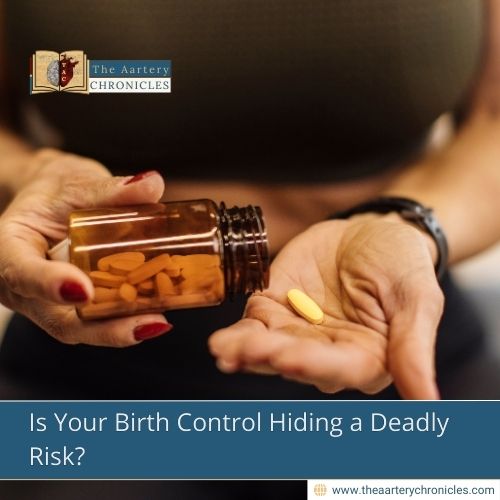

Is Your Birth Control Hiding a Deadly Risk?
A recent study presented at the European Stroke Organisation Conference (ESOC) 2025 has found that young women who take combined oral contraceptives that contain both estrogens and progestin may have up to three times the risk of experiencing a cryptogenic stroke, a type of stroke with no identifiable cause.
What Is a Cryptogenic Stroke?
A cryptogenic stroke is a type of ischemic stroke caused by a blockage in blood flow to the brain that occurs without a known reason. These strokes are surprisingly common, especially in younger adults, and account for nearly 40% of all ischemic strokes in that age group.
Expert Insight
Dr. Mine Sezgin, lead author of the study from Istanbul University, explained:
“Our results confirm earlier research linking hormonal birth control to stroke. What’s important here is that the risk remains high even when we account for other factors like smoking or high blood pressure. That means there may be deeper biological or genetic causes involved.”
Study Overview
Researchers analyzed data from 268 women aged 18 to 49 who had suffered a cryptogenic stroke and compared them with 268 stroke-free women of the same age. The findings showed:
- 66 stroke patients were using combined oral contraceptives.
- 38 women in the healthy group were also on the pill.
- This difference suggests a significantly increased stroke risk among those using these contraceptives.
Why This Matters
The study adds to growing evidence that hormonal birth control can affect blood vessels and clotting, potentially leading to strokes in some women. While the overall risk for healthy women remains low, those with existing risk factors a family history of stroke, migraines with aura, or clotting disorders may need to be more cautious.
Conclusion
This study serves as an important reminder that birth control decisions should be personalized. While hormonal contraceptives are safe for many, it’s essential to consider individual health risks. A conversation with a healthcare provider can help women choose the method that’s best and safest for them.
Source: Inputs from various media Sources

Priya Bairagi
Reviewed by Dr Aarti Nehra (MBBS, MMST)
I’m a pharmacist with a strong background in health sciences. I hold a BSc from Delhi University and a pharmacy degree from PDM University. I write articles and daily health news while interviewing doctors to bring you the latest insights. In my free time, you’ll find me at the gym or lost in a sci-fi novel.








